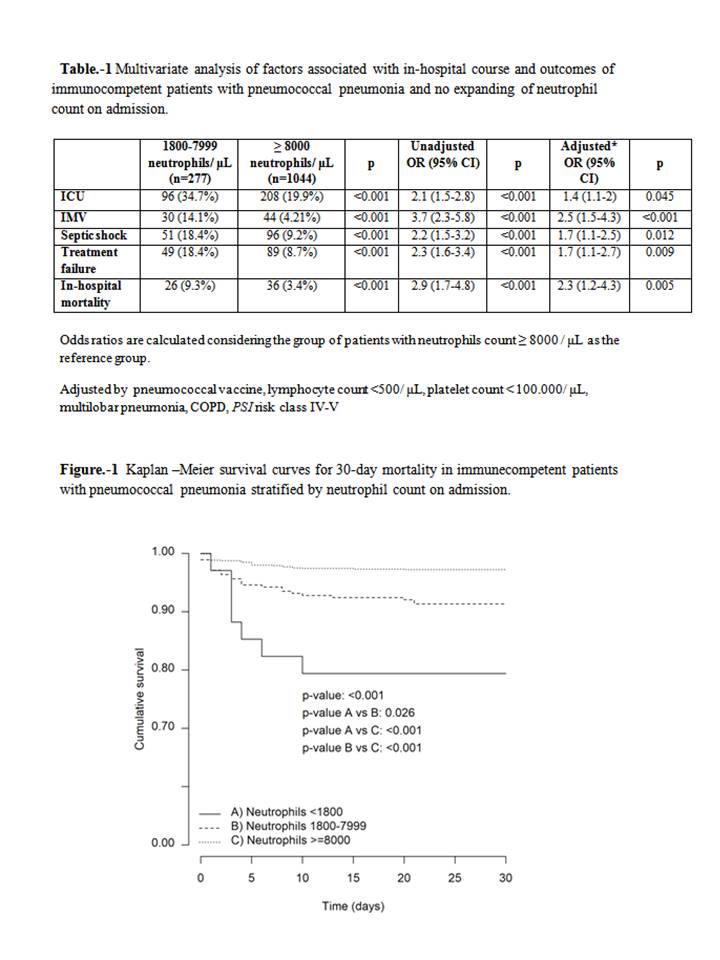Abstract
Purpose:To evaluate the impact of absence of an early circulating neutrophil count expansion (ECNCE) on in-hospital course in patients hospitalized with pneumococcal pneumonia (PP). Methods: Observational study based on analysis of a prospective registry of consecutive immunocompetent adults hospitalized for PP in two hospitals. The bacteriological diagnosis was based on the result of urinary antigen testing and/or blood culture obtained within 24h after admission. Failure of the expansion of neutrophil count was defined as a neutrophil count range from 1800 to 7999/?L in blood sample drawn at admission. For the purpose of this study patients with absence of an ECNC were compared with those presented a neutrophil count ? 8000 / ?L.Results: We included 1355 patients, 750 out of them aged ?65 years. Absence of ECNCE on admission was documented in 277 patients (20.4%); 69 patients died, of these 26 had a normal neutrophil count and 7 had <1800 neutrophil/?L. Table1:Multivariate analysis of factors associated with in-hospital course of patients with PP and absence of an ECNC. Figure1:Kaplan?Meier curves for 30-day mortality in patients with PP stratified by neutrophil count on admission. Conclusions:1.More than 20% of patients with PP had an absence of an ECNC on admision. 2.Failure of an ECNC is an independent predictor of 30-day mortality and severity in patients with PP.